publication-type: Report
-
Mainstreaming gender in energy sector practice and policy lessons from the ENERGIA International Network
The commissioned research focused on using evidence from ENERGIA’s experience with gender approaches to build insights for future implementation and to inform policy and practice according to the Theory of Change as presented by UK’s Department for International Development (DFID). These approaches have been widely used by ENERGIA through a range of projects and programmes…
-
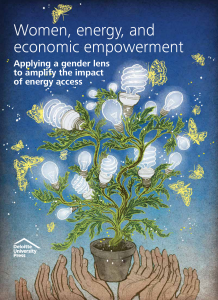
Women, energy and economic empowerment
-
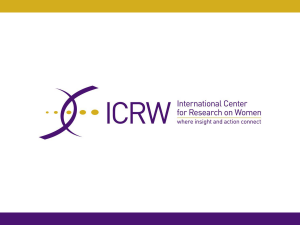
Defining and Measuring the Social Impact of Clean Cooking Solutions
-
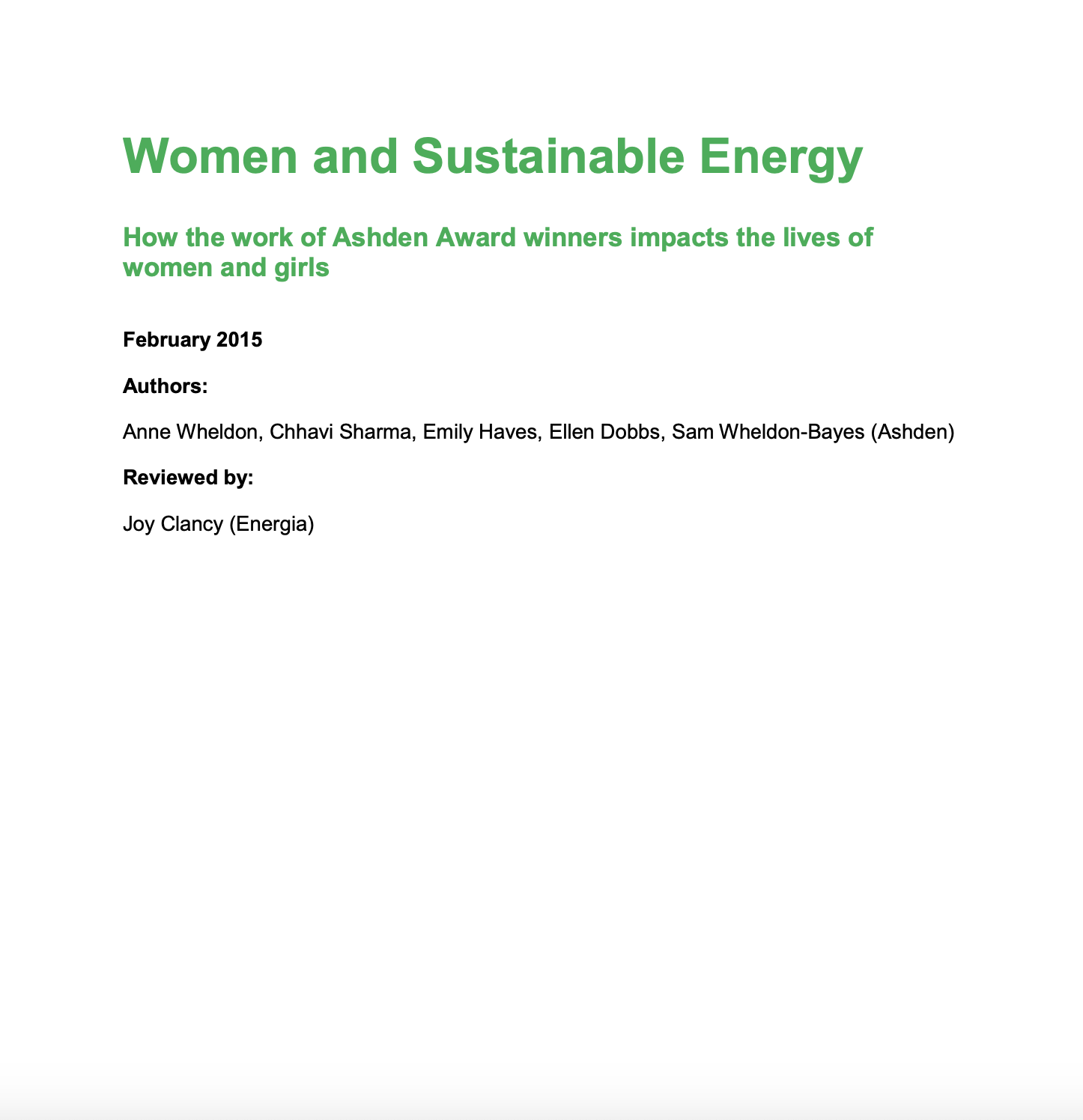
Women and Sustainable Energy – How the work of Ashden Award winners impacts the lives of women and girls
-
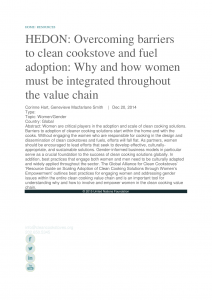
Overcoming barriers to clean cookstove and fuel adoption: Why and how women must be integrated throughout the value chain
-
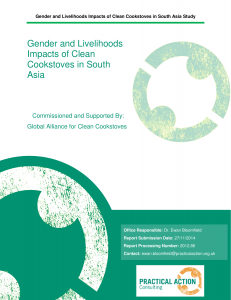
Gender and Livelihoods Impacts of Clean Cookstoves in South Asia
In South Asia, women play a significant and dominant role within the household cooking sector. Generally women do most of the cooking and, therefore, are disproportionately affected by household air pollution (HAP) caused by the inefficient burning of solid biomass cooking fuels. They are also required to spend a significant amount of time and effort…
-
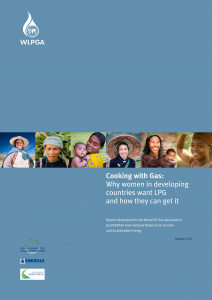
Cooking with Gas: Why women in developing countries want LPG and how they can get it
ENERGIA developed a report for the World LP Gas Association, investigating the need for access to clean cooking energy for women and girls. The World Energy Outlook estimates that almost 1.3 billion people living mostly in developing Asia or Sub-Saharan Africa and in rural areas are without access to electricity. Reports estimate that another 2.6…
-
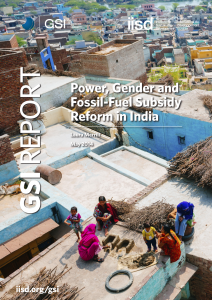
Power, Gender and Fossil – Fuel Subsidy Reform in India
-
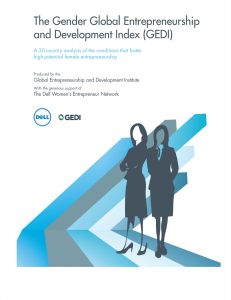
The Gender Global Entrepreneurship and Development Index
-
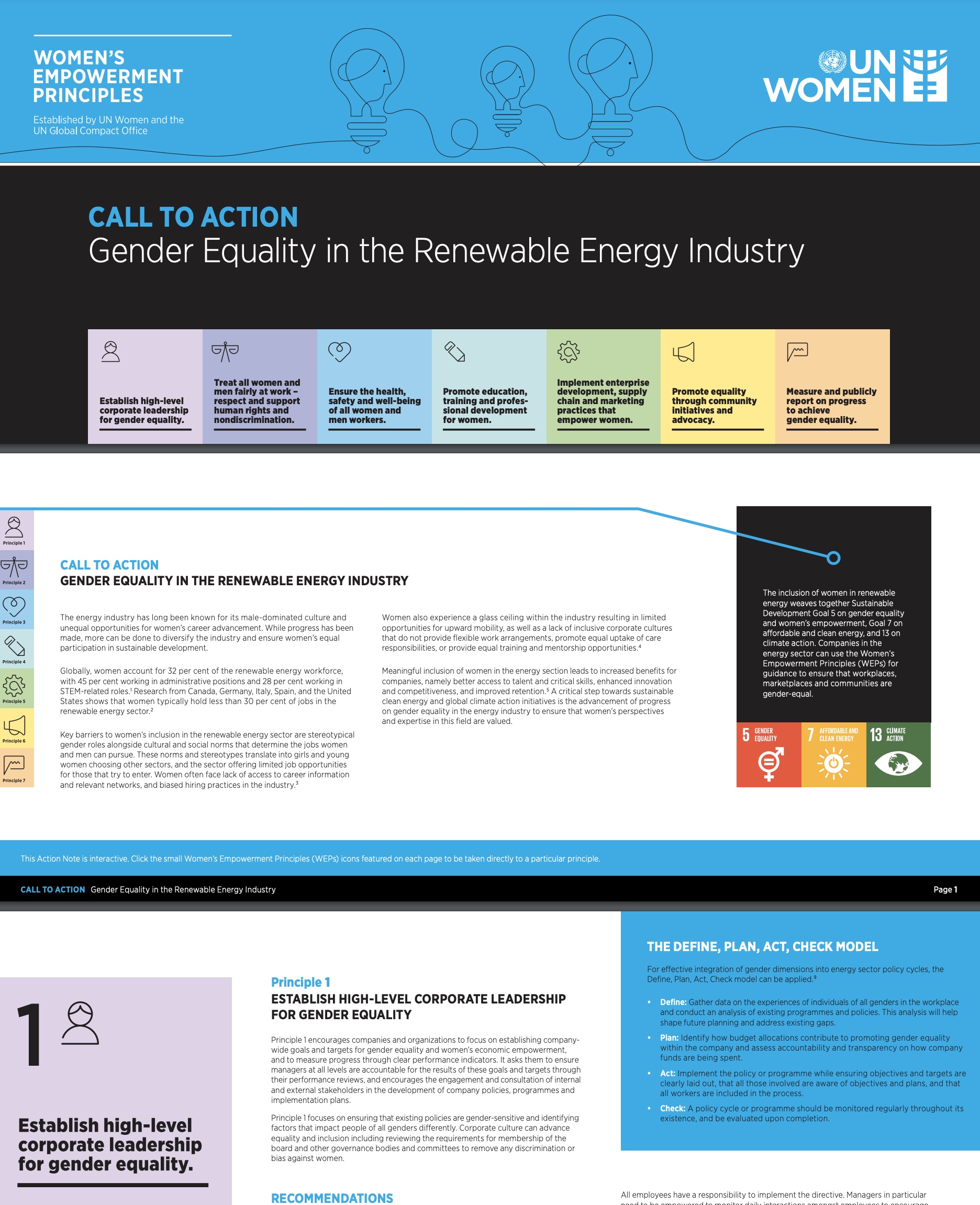
Call to Action: Gender Equality in the Renewable Energy Industry
The energy industry has long been known for its male-dominated culture and unequal opportunities for women’s career advancement. While progress has been made, more can be done to diversify the industry and ensure women’s equal participation in sustainable development. Globally, women account for 32 per cent of the renewable energy workforce, with 45 per cent…
-
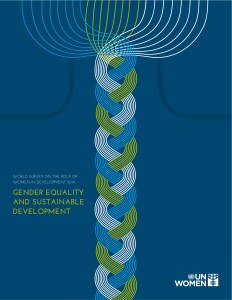
Gender equality and sustainable development – 2014 World Survey on the Role of Women in Development
The immense social, economic and environmental consequences of climate change and loss of essential ecosystems are becoming clear. Their effects are already being felt in floods, droughts, and devastated landscapesand livelihoods. Among those most affected are the women and girls, given the precariousness of their livelihoods, the burden of securing shelter, food, water and fuel…
-
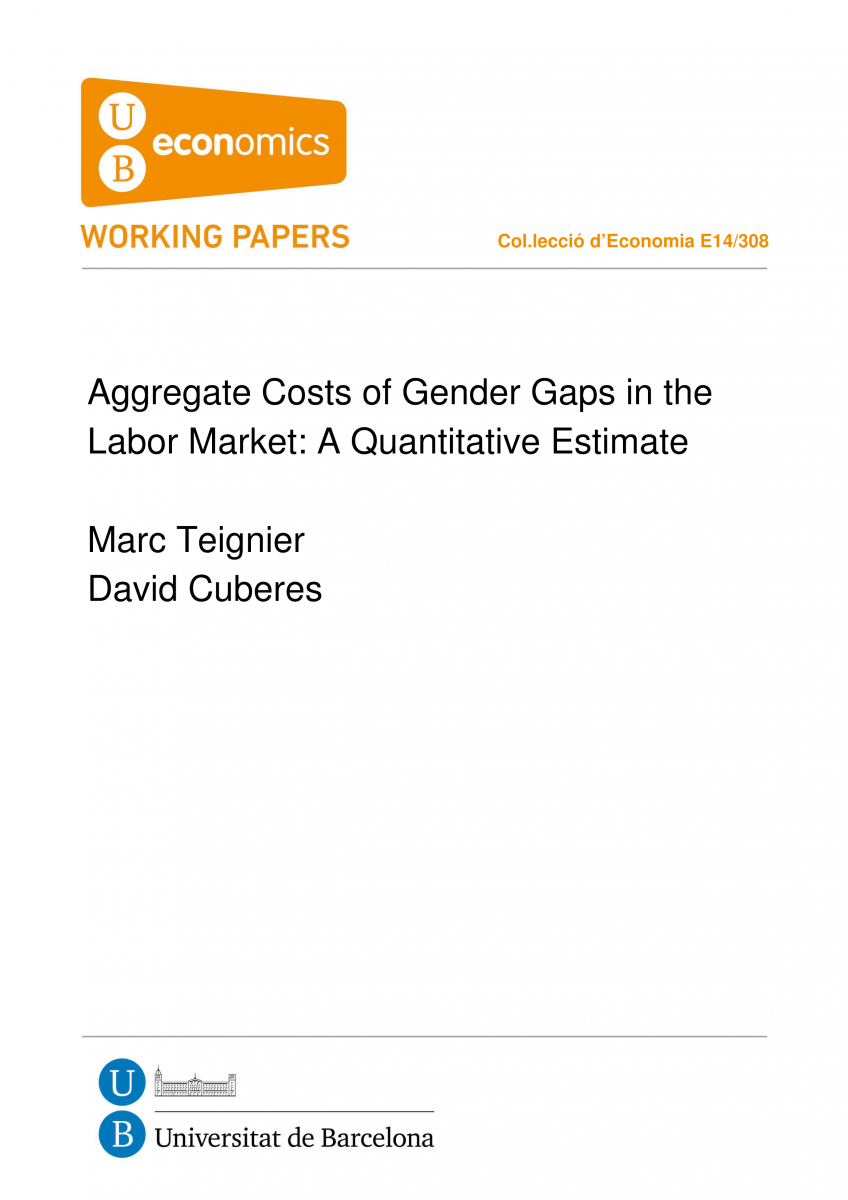
Aggregate Costs of Gender Gaps in the Labor Market: A Quantitative Estimate
This paper examines the quantitative effects of gender gaps in entrepreneurship and labor force participation on aggregate productivity and income per capita. We simulate an occupational choice model with heterogeneous agents in entrepreneurial ability, where agents choose to be workers, self-employed or employers. The model assumes that men and women have the same talent distribution,…

